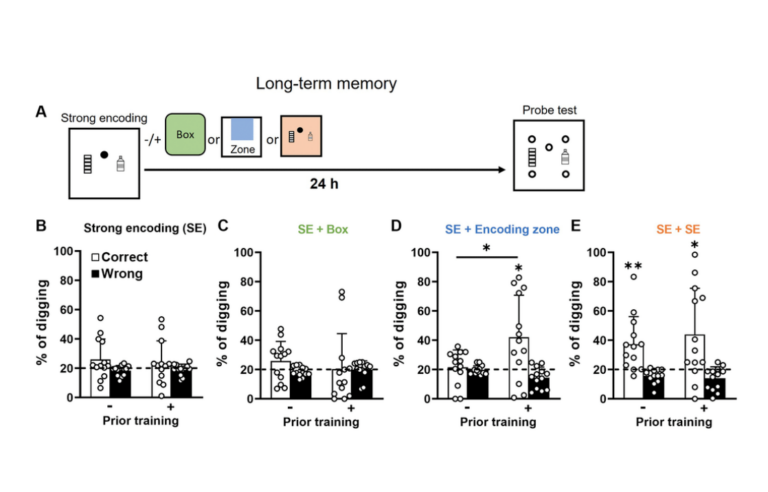In a new editorial, researchers discuss their recent study investigating the effect that cognitive reserve has on brain integrity and cognitive resilience.
—
Why do some individuals maintain cognitive abilities throughout their lifespan and others do not? The better question may be: How can certain individuals preserve their cognitive abilities and delay the onset of dementia despite the presence of significant neuropathologies that would otherwise suggest cognitive decline? This question remains unanswered.
“What contributes to this ‘resilience’ [3], that is why some successfully cope with progressive neuropathology while others cannot tolerate the same level of neurodegeneration, is not fully understood.”
This unanswered question has driven researchers to consider the idea of “cognitive reserve.” The rather new concept of cognitive reserve suggests that certain factors, such as engaging in education, mental stimulation and challenging activities, can create a buffer against cognitive decline and delay the onset of cognitive impairment or dementia. Researchers continue to study cognitive reserve to better understand its mechanisms and potential implications for maintaining brain health and designing effective interventions.
In a new editorial paper, researchers Monica E. Nelson, Ross Andel and Jakub Hort from the University of South Florida’s School of Aging Studies discussed the outcomes, lessons and future implications of their previous 2022 study. The team examined the influence of cognitive reserve proxies on the relationship between brain integrity and cognition. On July 14, 2023, their editorial was published in Aging’s Volume 15, Issue 13, entitled, “Cognitive reserve, neuropathology, and progression towards Alzheimer’s disease.”
Cognitive Reserve’s Effect on Brain Integrity & Cognitive Performance
In their 2022 study, a total 570 older adult participants were assessed from the Czech Brain Aging Study (a longitudinal cohort study from two memory clinics in the Czech Republic). Most of the participants (n = 457) were without dementia (including those with subjective cognitive decline and amnestic mild cognitive impairment) and the remaining participants were with dementia syndrome (n = 113). The researchers examined the influence of education and occupational position (cognitive reserve proxies) on the relationship between the participants’ hippocampal or total gray matter volume and cognitive performance. Measurements included brain volume, executive control, language, memory, attention/working memory, and visuospatial skills.
“[…] we assessed the inter-link between cognitive reserve, neuropathology, and cognitive functioning among participants with subjective cognitive decline, mild cognitive impairment, and dementia.”
The team found that the association between brain volume and cognitive performance varies based on cognitive reserve. Findings showed that a higher education and occupational position magnified the associations between brain volume and cognitive performance in participants without dementia. In participants with dementia, higher education decreased the associations between brain volume and visuospatial skills. Overall, the results showed that cognitive reserve affects the relationship between brain volume and cognitive performance, with greater cognitive reserve related to a stronger link before dementia diagnosis and a weaker link after.
Future Directions
In their subsequent editorial, the researchers were forthcoming about limitations of this study and addressed key opportunities for future studies. Limitations were identified as the use of a relatively homogeneous sample population, the absence of the use of biomarkers in diagnosis and the cross sectional design. Cross-sectional studies may not fully capture disease-related changes in neuropathology and could present a distorted view of the linkages between cognitive reserve, neuropathology and cognitive outcomes. The authors advocate for conducting longitudinal studies to track how cognitive reserve operates in individuals as they progress from normal to dementia.
Additionally, the team wrote that future studies would be improved by investigating a range of Alzheimer’s disease biomarkers, such as beta-amyloid and tau, individually and together, to understand how they influence the associations between cognitive reserve, brain health and cognition. Different biomarkers may lead to varied results in how cognitive reserve moderates these associations. And finally, future studies should also assess older adults across the cognitive spectrum to determine when cognitive reserve is protective against brain health decline and neuropathology, and when its effectiveness diminishes. Some researchers have suggested a U-shaped relationship to explain mixed findings in different studies.
“Even though our study represents one of the first to come from Eastern Europe [4], future work should be conducted in additional populations, representing geographic, racial, and socioeconomic diversity.”
Implications
The potential impact of this research may be important, as it could lead to the development of effective interventions and strategies to preserve cognitive abilities and delay the onset of dementia. By gaining a deeper understanding of cognitive reserve and its mechanisms, we can take steps to promote brain health throughout life, potentially reducing the burden of dementia on individuals, communities and society overall.
As research continues in this field, it is clear that cognitive reserve holds great promise for unlocking the secrets of cognitive resilience and paving the way for healthier aging and improved quality of life for older adults. By addressing the limitations of current studies and exploring new avenues of investigation, we move closer to finding answers to the vital question of how some individuals maintain their cognitive abilities despite the presence of significant neuropathologies, while others do not.
“By assessing cognitive reserve in distinct populations, a more complete understanding of how cognitive reserve relates to neuropathology and cognition and whether these associations may be affected by distinct macro-level contextual differences among populations can be established. Disentangling these complex relationships may provide a critical step in reducing the impact of dementia on society.”
Click here to read the full editorial published by Aging.
—
Aging is an open-access, peer-reviewed journal that has been publishing high-impact papers in all fields of aging research since 2009. These papers are available to readers (at no cost and free of subscription barriers) in bi-monthly issues at Aging-US.com.
Click here to subscribe to Aging publication updates.
For media inquiries, please contact media@impactjournals.com.

